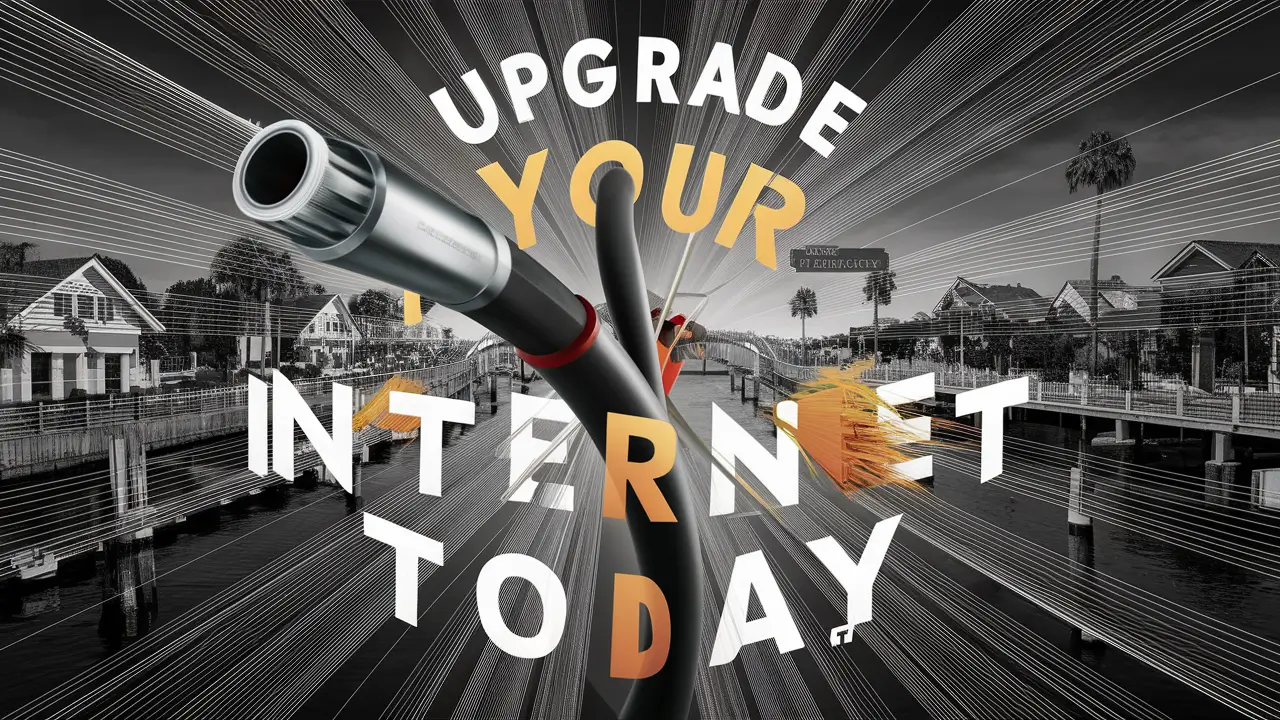
Before delving into the details, let's understand what hardwiring internet in your home setup means. Essentially, it involves using Ethernet cables to connect your devices directly to your router or modem, as opposed to relying on Wi-Fi connections. This method has its own set of advantages and disadvantages, which we'll explore in the following sections.
The Pros
1. Enhanced Stability
Hardwiring your internet connection offers unparalleled stability. Unlike Wi-Fi, which can be affected by interference from other electronic devices and physical obstacles, a wired connection minimizes disruptions. You'll experience fewer dropped connections and smoother online activities.
2. Faster Speeds
For bandwidth-intensive activities like online gaming and 4K video streaming, hardwiring provides faster and more consistent speeds. If you want to make the most of your high-speed internet plan, Ethernet is the way to go.
3. Lower Latency
Gamers, in particular, will appreciate the lower latency offered by hardwiring. Reduced lag and faster response times can make a significant difference in online gaming performance.
4. Improved Security
Wired connections are inherently more secure because they are not as susceptible to hacking or unauthorized access. This makes it an ideal choice for sensitive data transmission and online work.
5. Consistent Performance
Whether you're working, streaming, or gaming, a hardwired connection ensures a consistent performance level, with minimal fluctuations in speed or connection quality.
The Cons
1. Installation Complexity
Setting up a hardwired network can be more challenging and time-consuming than a wireless one. It may require drilling holes, running cables, and configuring your devices accordingly.
2. Limited Mobility
One of the most significant drawbacks is the limited mobility of hardwired devices. Unlike Wi-Fi, where you can move around your home freely, wired devices are tethered to the Ethernet cable's length.
3. Aesthetic Considerations
Ethernet cables can be unsightly and may disrupt the visual appeal of your living space. Concealing them might require additional effort and cost.
4. Initial Costs
While Ethernet cables themselves are not expensive, setting up a hardwired network may require additional equipment and professional installation, leading to higher initial costs.
5. Lack of Flexibility
Once you've installed Ethernet cables in your home, making changes to your network layout can be challenging. It lacks the flexibility of a wireless network, which can be easily reconfigured.
FAQs
How do I set up a hardwired network at home?
Setting up a hardwired network involves running Ethernet cables from your router to the desired locations, using cable clips or conduits to secure the cables along the way. You'll also need compatible network adapters for your devices.
Can I use a combination of hardwired and Wi-Fi connections at home?
Absolutely! Many homes use a hybrid approach, with hardwired connections for stationary devices like desktop computers and Wi-Fi for mobile devices like smartphones and tablets.
What type of Ethernet cable should I use for my hardwired setup?
For optimal performance, use Cat 6 or Cat 6a Ethernet cables. These cables support high-speed data transmission and are suitable for most home setups.
Are there any alternatives to traditional Ethernet cables for hardwiring?
Powerline adapters and MoCA (Multimedia over Coax) are alternative options that use existing electrical wiring or coaxial cables for hardwired connections. They can be more convenient in certain situations.
Can I install a hardwired network myself?
While it's possible to set up a hardwired network on your own, professional installation is recommended for complex setups, especially if you're not experienced in networking.
Is hardwiring necessary for all online activities?
No, hardwiring is not necessary for all online activities. For casual web browsing and video streaming, Wi-Fi can suffice. However, for demanding tasks like gaming or 4K streaming, hardwiring is recommended.
Conclusion
The decision to hardwire your internet connection in your home setup ultimately depends on your specific needs and priorities. It's a trade-off between the unparalleled stability, speed, and security of hardwired connections and the convenience and flexibility of Wi-Fi. Assess your requirements, consider the pros and cons, and make an informed choice that best suits your online lifestyle.
The Pros and Cons of Hardwiring Internet in Your Home Setup is a topic that requires careful consideration, and by understanding the advantages and disadvantages, you can ensure your home network meets your digital needs efficiently.






